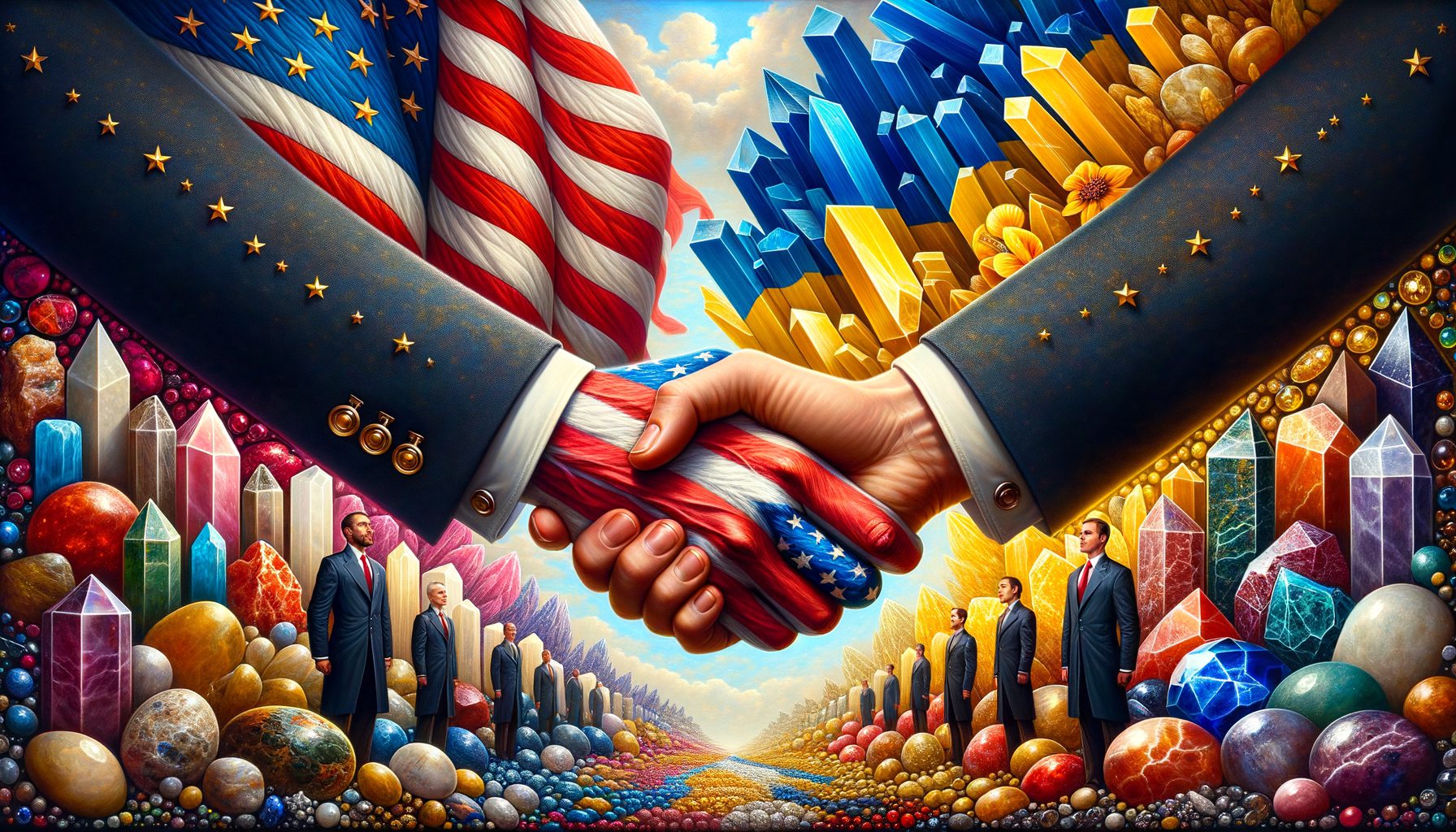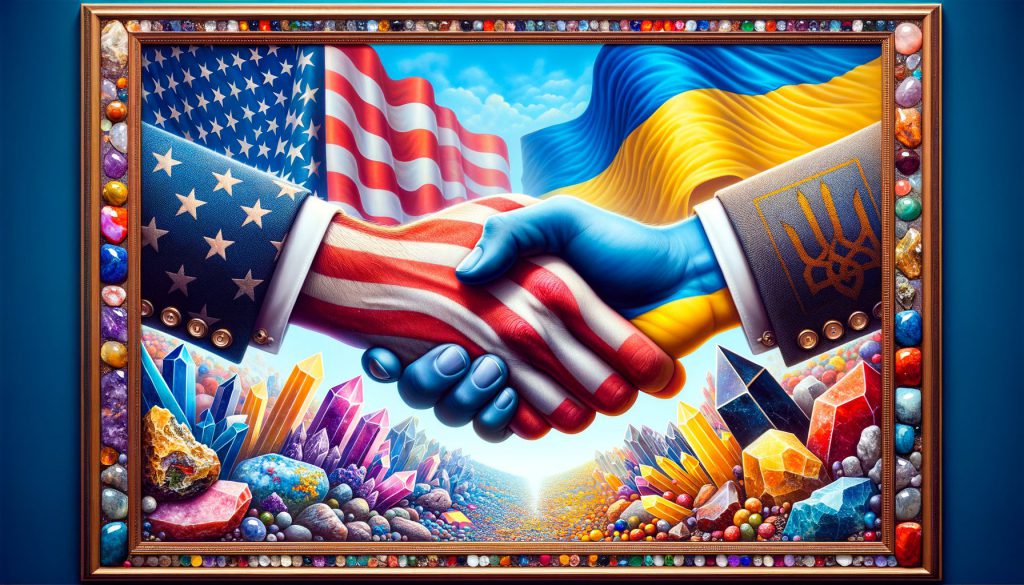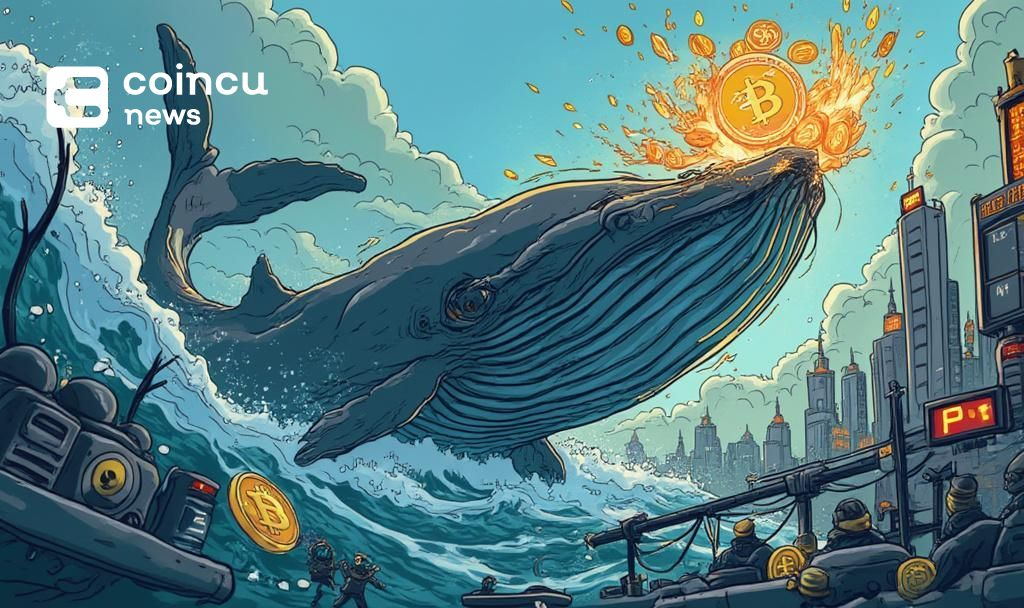US and Ukraine Strike Mineral Deal—A Game-Changer for Energy Supply Chains

Some heavy & critical mineral deal initiatives have catalyzed unprecedented strategic developments between the United States and Ukraine, spearheading a transformative approach to global energy supply chains. This deal packs some serious punch in reshaping how all countries think about their resource management.
Also Read: Make-or-Break for NVIDIA? NVDA’s SWOT Analysis & Earnings Outlook Explained
How The US-Ukraine Mineral Deal Reshapes Energy Supply Chain

Strategic Mineral Landscape

The proposed agreement represents multiple key industrial capabilities, with Ukraine’s mineral deposits capturing a more significant number of eyes.
Senator Lindsey Graham has said:
“Ukraine has significant lithium, titanium, and other rare earth minerals that are needed by the American economy. Expanding economic cooperation with Ukraine makes America stronger and accelerates Ukraine’s economic recovery.”
Also Read: 3 Million Bitcoin at a Loss, Can BTC Make A Comeback in March?
Geopolitical Complexities

Various challenges have emerged, with Russia currently controlling about 20% of Ukraine’s territory and around 40% of its metal resources. A senior Ukrainian official revealed some details about the nuanced negotiations, going as far as saying that the initial proposals weren’t enough to close the deal:
“When we looked at the details there was nothing there [about future US security guarantees]. The contract meant ‘pay us first, and then feed your children.'”
What Does It Mean?
There are a few key paths that could change energy supply chains fundamentally, while also challenging China’s current mineral processing dominance. Currently, China controls a whopping 35% to 90% of a variety of critical mineral supplies, and this is a big vulnerability in global supply networks. Of course, the US is also highly affected by this fact.
Also Read: Shiba Inu Outperforms Bitcoin, XRP: SHIB To $0.000025 Soon?
Jack Bedder, founder of market intelligence group Project Blue, offered the following statement:
“While Ukraine may have mineral potential for various commodities, and an established steel and ferroalloys sector which could be resuscitated, its future is very uncertain.”
The mineral negotiations have been intricate, with President Donald Trump indicating the deal’s strategic importance as a “security” against previous and potential investments. Government resources indicate that around $174 billion in value has been appropriated by Congress for Ukraine since the war began back in the year 2022.
A comprehensive mineral agreement would potentially unlock resources worth approximately $11.5 trillion in value. This creates an extraordinary opportunity for American manufacturing and technological independence. At the same time, it gives the US a much-needed respite in its trade war with China and other nations.
What Does the Future Hold?
Despite some evident challenges, the US-Ukraine mineral deal could reshape the state of the energy supply chains, offering new pathways for technological innovation and economic cooperation.
Also Read: M2 Money Supply Goes Parabolic—Is a Massive Bitcoin Rally Incoming?
Wanna stay updated? Keep reading Watcher Guru!
Read More

Seven-Year Dormant Bitcoin Whale Triggers Massive Liquidations
US and Ukraine Strike Mineral Deal—A Game-Changer for Energy Supply Chains

Some heavy & critical mineral deal initiatives have catalyzed unprecedented strategic developments between the United States and Ukraine, spearheading a transformative approach to global energy supply chains. This deal packs some serious punch in reshaping how all countries think about their resource management.
Also Read: Make-or-Break for NVIDIA? NVDA’s SWOT Analysis & Earnings Outlook Explained
How The US-Ukraine Mineral Deal Reshapes Energy Supply Chain

Strategic Mineral Landscape

The proposed agreement represents multiple key industrial capabilities, with Ukraine’s mineral deposits capturing a more significant number of eyes.
Senator Lindsey Graham has said:
“Ukraine has significant lithium, titanium, and other rare earth minerals that are needed by the American economy. Expanding economic cooperation with Ukraine makes America stronger and accelerates Ukraine’s economic recovery.”
Also Read: 3 Million Bitcoin at a Loss, Can BTC Make A Comeback in March?
Geopolitical Complexities

Various challenges have emerged, with Russia currently controlling about 20% of Ukraine’s territory and around 40% of its metal resources. A senior Ukrainian official revealed some details about the nuanced negotiations, going as far as saying that the initial proposals weren’t enough to close the deal:
“When we looked at the details there was nothing there [about future US security guarantees]. The contract meant ‘pay us first, and then feed your children.'”
What Does It Mean?
There are a few key paths that could change energy supply chains fundamentally, while also challenging China’s current mineral processing dominance. Currently, China controls a whopping 35% to 90% of a variety of critical mineral supplies, and this is a big vulnerability in global supply networks. Of course, the US is also highly affected by this fact.
Also Read: Shiba Inu Outperforms Bitcoin, XRP: SHIB To $0.000025 Soon?
Jack Bedder, founder of market intelligence group Project Blue, offered the following statement:
“While Ukraine may have mineral potential for various commodities, and an established steel and ferroalloys sector which could be resuscitated, its future is very uncertain.”
The mineral negotiations have been intricate, with President Donald Trump indicating the deal’s strategic importance as a “security” against previous and potential investments. Government resources indicate that around $174 billion in value has been appropriated by Congress for Ukraine since the war began back in the year 2022.
A comprehensive mineral agreement would potentially unlock resources worth approximately $11.5 trillion in value. This creates an extraordinary opportunity for American manufacturing and technological independence. At the same time, it gives the US a much-needed respite in its trade war with China and other nations.
What Does the Future Hold?
Despite some evident challenges, the US-Ukraine mineral deal could reshape the state of the energy supply chains, offering new pathways for technological innovation and economic cooperation.
Also Read: M2 Money Supply Goes Parabolic—Is a Massive Bitcoin Rally Incoming?
Wanna stay updated? Keep reading Watcher Guru!
Read More

